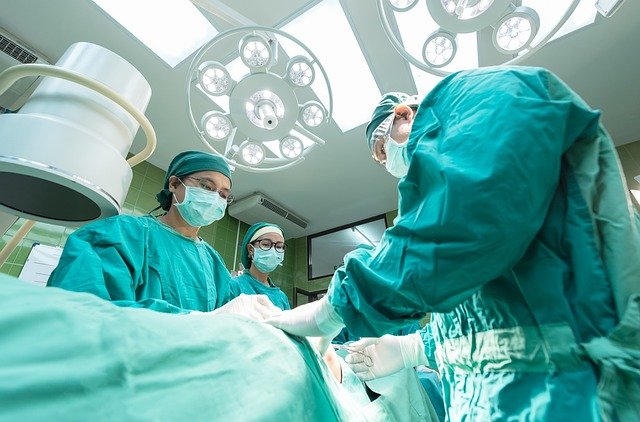What Is The Cost Of Fibroid Surgery In Nigeria In 2024? This question is important for women struggling with uterine fibroids, a common medical condition.
Uterine fibroids are noncancerous growths in the uterus that can cause various symptoms, leading to the consideration of surgical options.
In this piece, I’ll discuss the various aspects of fibroid surgery in Nigeria, including expenses and procedures, dangers, and the influence on fertility.
What is the Cost of Fibroid Surgery in Nigeria in 2024?
The current price of Fibroid Surgery in Nigeria:
- ₦200,000.00
- ₦250,000.00
- ₦400,000.00
- ₦600,000.00
- ₦950,000.00
The varied prices are influenced by the type of surgery, the hospital, and the location.
Laparoscopy
Laparoscopy, appropriate for smaller fibroids, involves making two small cuts in the belly.
The surgeon uses a telescope and a tool to remove the fibroids. This procedure, including robotic laparoscopy, allows for a faster recovery than an abdominal myomectomy.
Hysterectomy
Hysterectomy, the removal of part or all of the uterus, is a definitive solution to uterine fibroids.
This may be suitable for individuals with numerous, large fibroids and no plans for future pregnancies.
Different approaches include laparotomy, vaginal hysterectomy, and laparoscopic hysterectomy, with varying recovery times.
Endometrial Ablation
Endometrial ablation, though not surgery in the traditional sense, is a minimally invasive procedure that destroys the uterine lining.
It is effective for relieving heavy bleeding associated with fibroids. However, it is not suitable for women desiring future pregnancies.
Myomectomy
Myomectomy, removing fibroids while preserving the uterus, is a viable option for those wanting children or desiring to keep their uterus.
Approximately 80 to 90 percent of women experience relief or reduced symptoms after a myomectomy.
However, up to 33 percent may require a repeat procedure within five years due to new fibroid growth.
The procedure can be performed in various ways, including hysteroscopy, abdominal myomectomy, and laparoscopy.
Abdominal Myomectomy
Suited for larger fibroids, an abdominal myomectomy, or laparotomy, leaves a more prominent scar.
The surgeon makes an incision in the lower belly to remove the fibroids. Recovery involves a hospital stay of one to three days, with a complete recovery period ranging from 2 to 6 weeks.
Benefits and Risks of Fibroid Surgery
Fibroid surgery and endometrial ablation can alleviate symptoms such as heavy bleeding and abdominal pain.
These procedures are not without risks, including bleeding, infection, the need for repeat procedures, and potential damage to surrounding organs.
Laparoscopy, compared to laparotomy, generally causes less bleeding and fewer complications.
Surgery and Fertility
The impact of fibroid surgery on fertility varies. Myomectomy allows for conception, but pregnancy after hysterectomy is not possible.
Endometrial ablation affects fertility, making contraception necessary for those undergoing the procedure.
Patients with procedures allowing future pregnancies may need to wait for their uterus to fully heal before attempting to conceive.
Frequently Asked Questions About Fibroid Surgery in Nigeria
1. Which operation is better for fibroids?
– The choice of operation depends on the size, location, and symptoms of the fibroids.
Common procedures include myomectomy (removing the fibroids while preserving the uterus) and hysterectomy (removing the uterus).
Your doctor will help determine the best option for your specific situation.
2. Is fibroid surgery risky?
– As with any surgery, there are risks involved. Complications can include bleeding, infection, injury to surrounding organs, or anesthesia-related issues.
The risk depends on factors such as the type of surgery and your overall health. Your surgeon will discuss potential risks with you before the procedure.
3. How soon can fibroids grow back after surgery?
– Fibroids can grow back after surgery, but the timing varies.
Some women may experience regrowth within a few months, while others may take several years.
The likelihood of recurrence depends on factors like the type of surgery and the presence of any remaining fibroid tissue.
4. Is fibroid treatment expensive?
– The cost of fibroid treatment can vary widely depending on the chosen procedure, geographic location, healthcare facility, and insurance coverage.
It’s advisable to check with your healthcare provider and insurance company to get an estimate of costs.
5. How many hours is fibroid removal surgery?
– The duration of fibroid removal surgery varies depending on factors such as the size and number of fibroids, the chosen surgical approach, and the surgeon’s experience.
Procedures can range from a couple of hours to longer for more complex cases.
6. At what size do fibroids need surgery?
– The decision to perform surgery depends on various factors, not just the size of the fibroids.
Symptoms, location, and impact on fertility also play a role.
Smaller fibroids may not necessarily require surgery, while larger ones that cause significant symptoms may prompt intervention.
7. Can fibroids be removed without surgery?
– Some nonsurgical options exist, such as medications or minimally invasive procedures like uterine artery embolization or focused ultrasound.
The effectiveness of these methods depends on factors like the size and type of fibroids.
8. Are you awake during fibroid surgery?
– The level of anesthesia depends on the type of surgery.
For major procedures like hysterectomy, general anesthesia is typically used, meaning you will be unconscious. For less invasive procedures, local or regional anesthesia may be an option.
9. Is fibroid surgery painful?
– Pain levels can vary, but surgeons use anesthesia to ensure you don’t feel pain during the procedure.
After surgery, there may be some discomfort or pain, and pain management strategies will be employed to keep you as comfortable as possible.
10. Can you walk after fibroid surgery?
– After surgery, your ability to walk may be limited initially due to factors like anesthesia, pain, and the type of surgery performed.
Healthcare providers encourage gentle movement and walking as part of the recovery process once you can do so comfortably.
In Summary
Finally, What is the Cost of Fibroid Surgery in Nigeria in 2024? Understanding the cost and available options for fibroid surgery is essential for women facing the challenges posed by uterine fibroids.
The decision to undergo surgery involves careful consideration of factors such as fertility preservation, symptoms, and associated risks.
While surgical interventions provide relief from fibroid-related symptoms, alternative treatments, and medications can also be explored based on individual preferences and medical advice.
Individuals must consult with healthcare professionals to make informed decisions regarding fibroid surgery in Nigeria.






